Problem-Solving Skills Numbers 0–10 Worksheets for Ages 6-7
9 filtered results
-
From - To
Enhance your child's mathematical abilities with our Problem-Solving Skills Numbers 0–10 Worksheets designed for ages 6-7. Tailored to build confidence and foster critical thinking, these engaging worksheets guide young learners through fun activities focused on numbers from 0 to 10. Kids will enjoy solving puzzles, completing patterns, and tackling simple word problems, all while strengthening their understanding of fundamental math concepts. Each worksheet is created to cater to your child's developmental needs, making learning enjoyable and effective. Perfect for classroom use or at-home practice, our worksheets will inspire a lifelong love of math in your child.
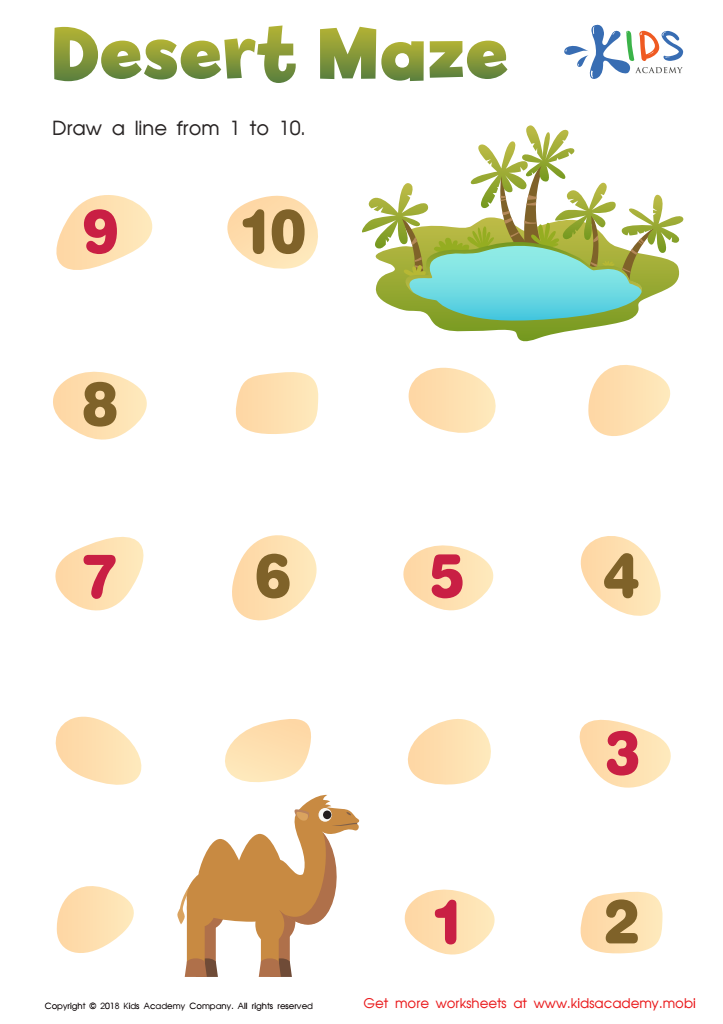

Desert Maze Worksheet
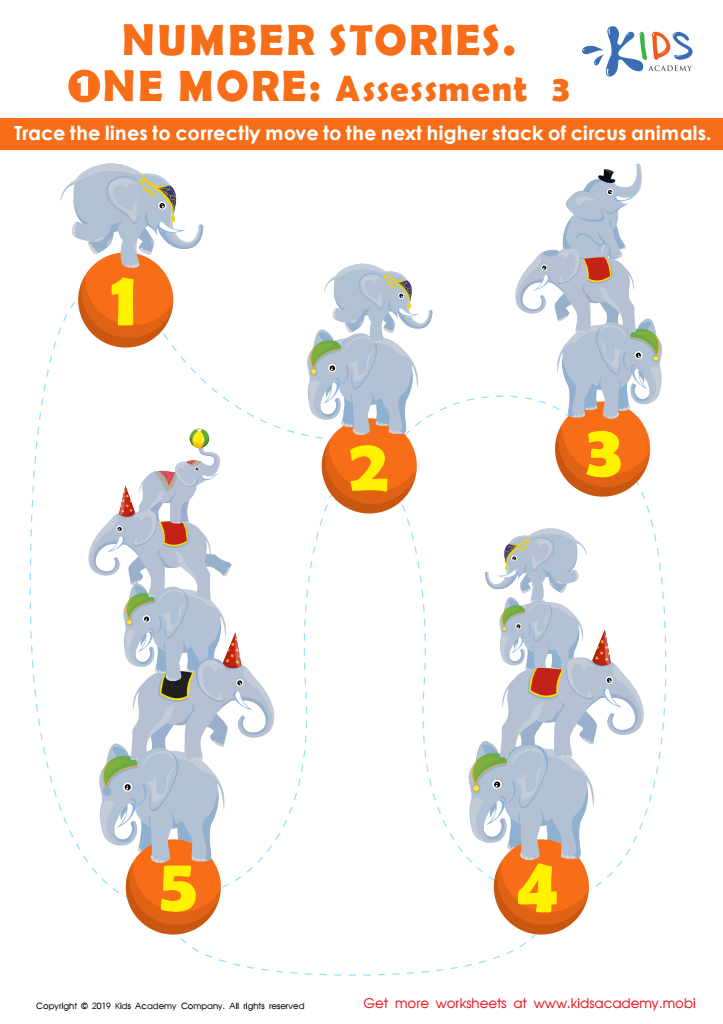

Number Stories One More: Assessment 3 Worksheet
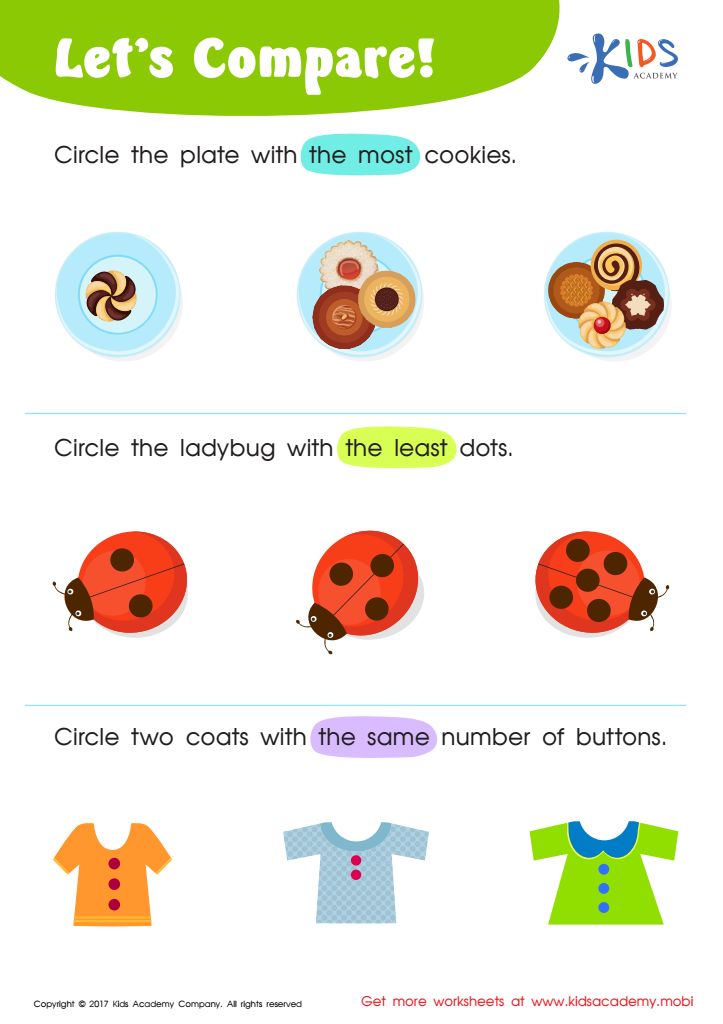

Matching: Classifying Toys by Size Worksheet
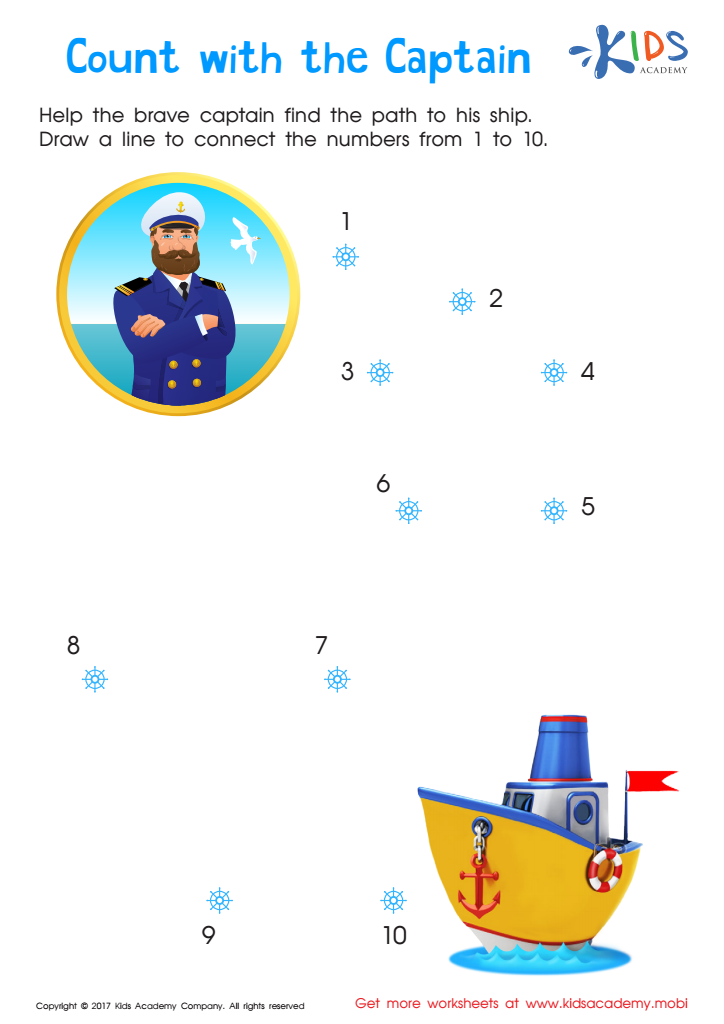

Count with the Captain Connect Dots Worksheet
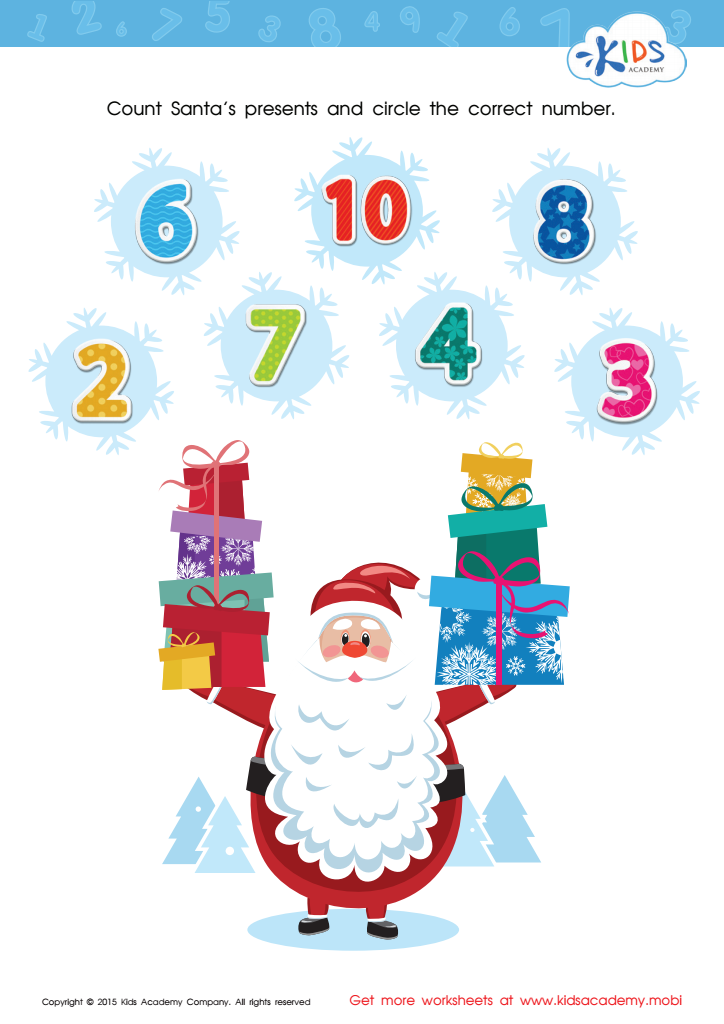

Count Santa's Presents Worksheet
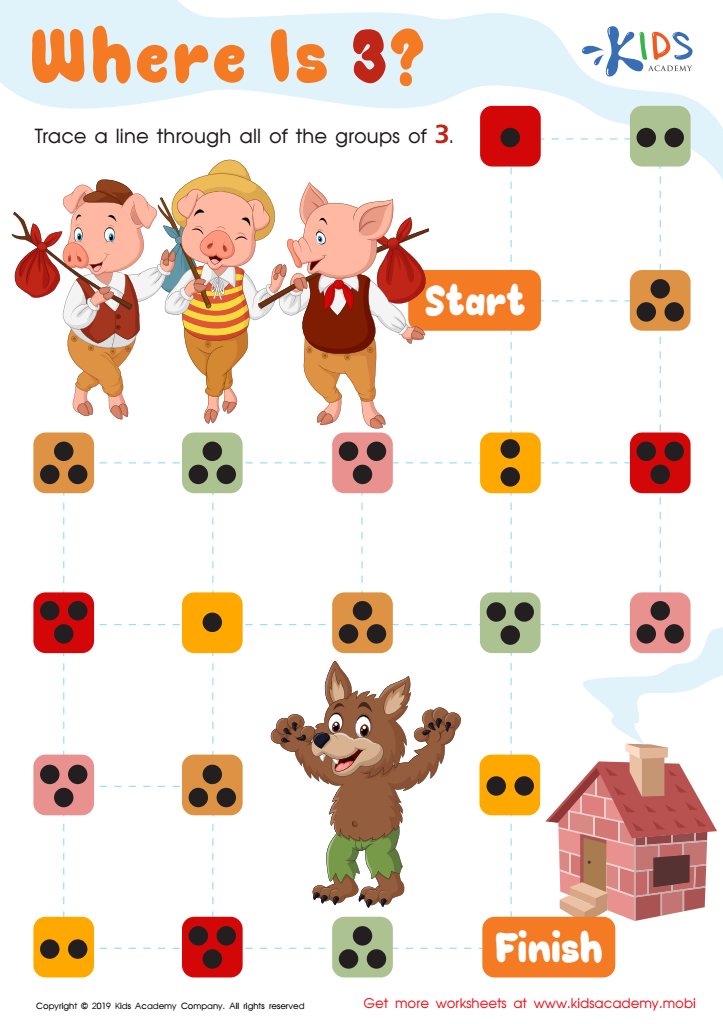

Where Is 3? Worksheet
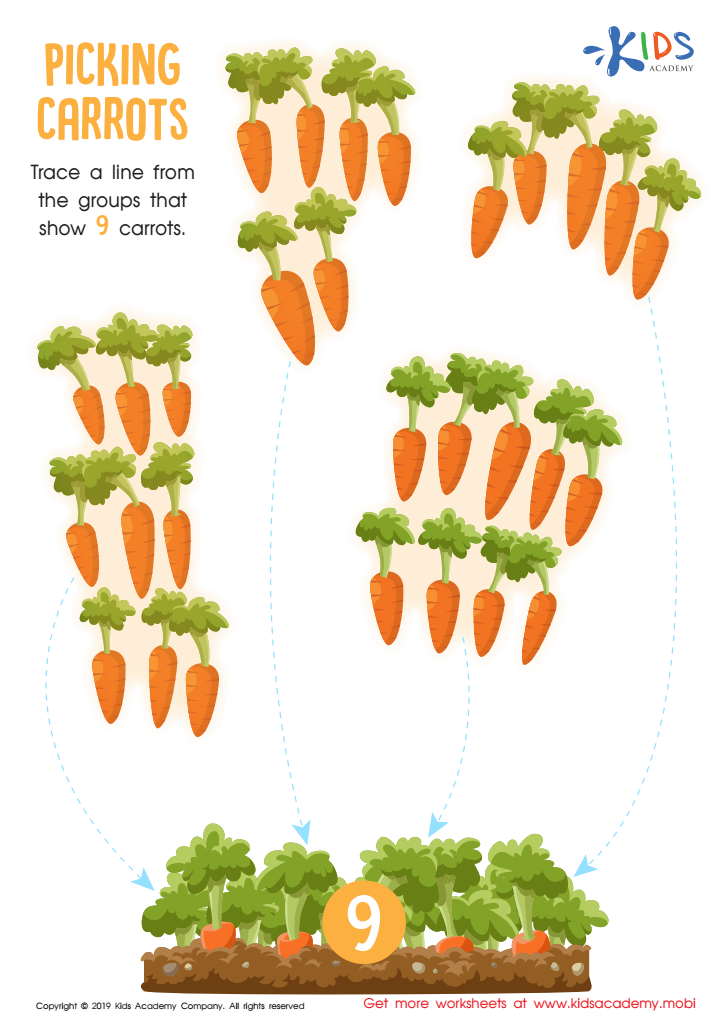

Picking Carrots Worksheet
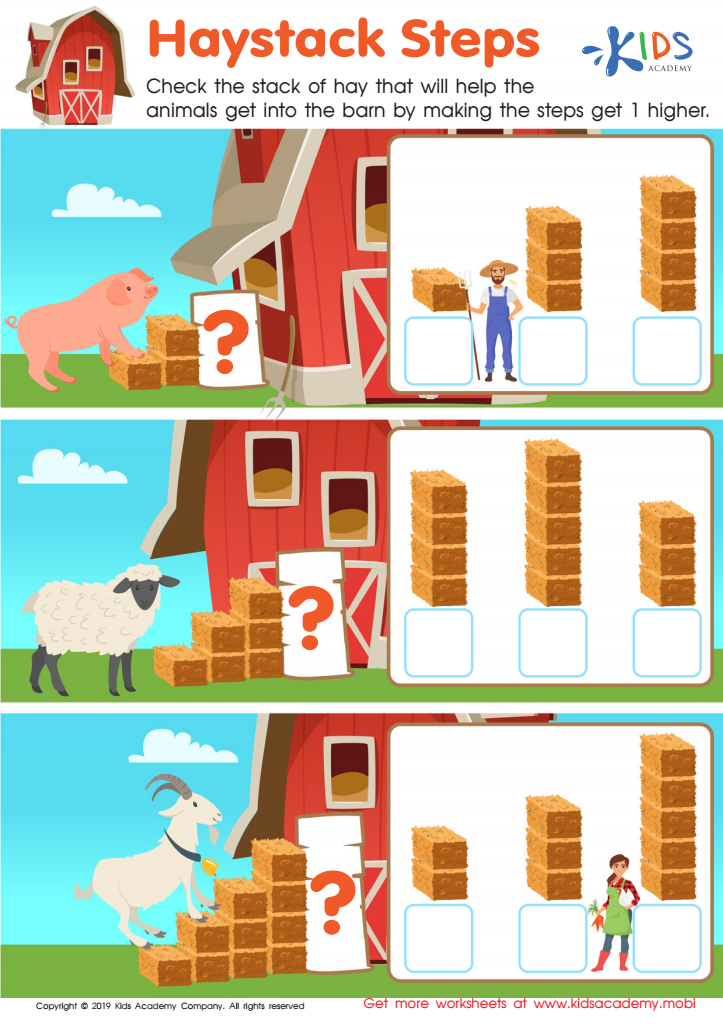

Haystack Steps Worksheet
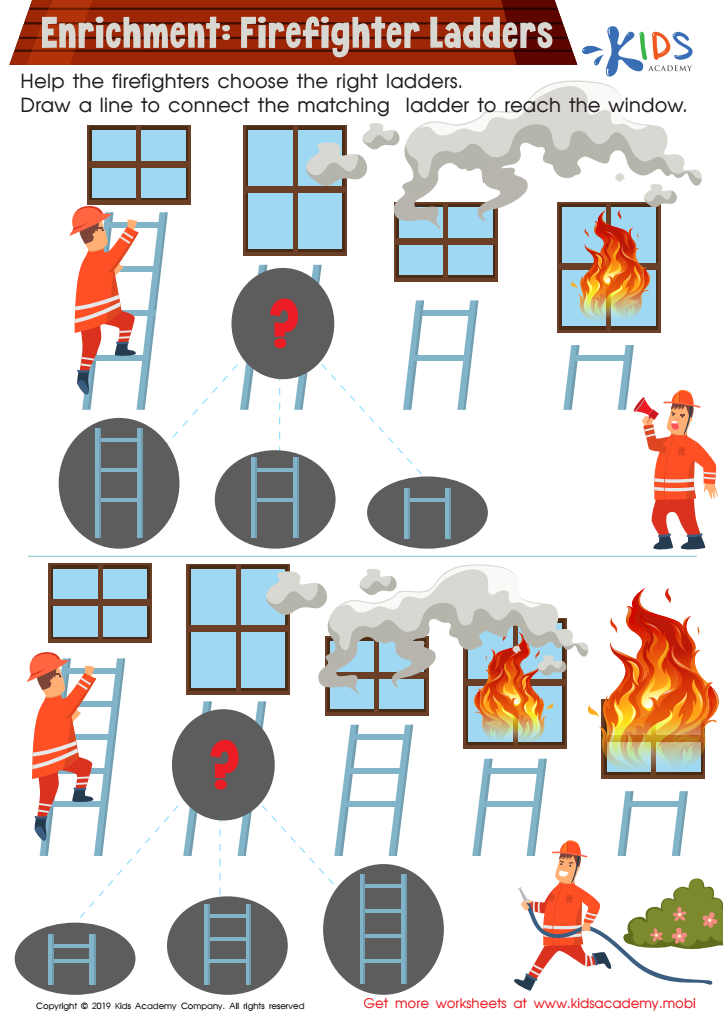

Enrichment: Firefighter Ladders Worksheet
Parents and teachers play a crucial role in fostering problem-solving skills in children, particularly for numbers 0–10 at ages 6–7. This foundational phase is critical because it sets the stage for mathematical understanding and cognitive development. Engaging with numbers hones their ability to think logically, strategize, and understand sequences, which are essential skills not just for math, but for everyday decision-making and critical thinking.
At this age, children are naturally curious and receptive, making it the perfect time to instill a strong numerical foundation. Early exposure to problem-solving with numbers helps them develop a grasp of basic arithmetic—addition, subtraction, and patterns. These exercises enhance memory, increase focus, and improve fine motor skills through writing digits.
Furthermore, problem-solving nurtures resilience. Encountering and overcoming challenges reinforces perseverance. It cultivates a mindset where making mistakes is seen as a path to learning rather than failure.
Additionally, numbers are a universal language, enabling real-world applications. Whether recognizing time, sorting, or understanding money, these skills are indispensable. Ultimately, strengthening numerical problem-solving capability at an early stage builds confidence, essential for academic success and lifelong learning. Exploring these concepts lays a versatile, robust framework for children's overall intellectual growth and adaptability.
 Assign to My Students
Assign to My Students

















